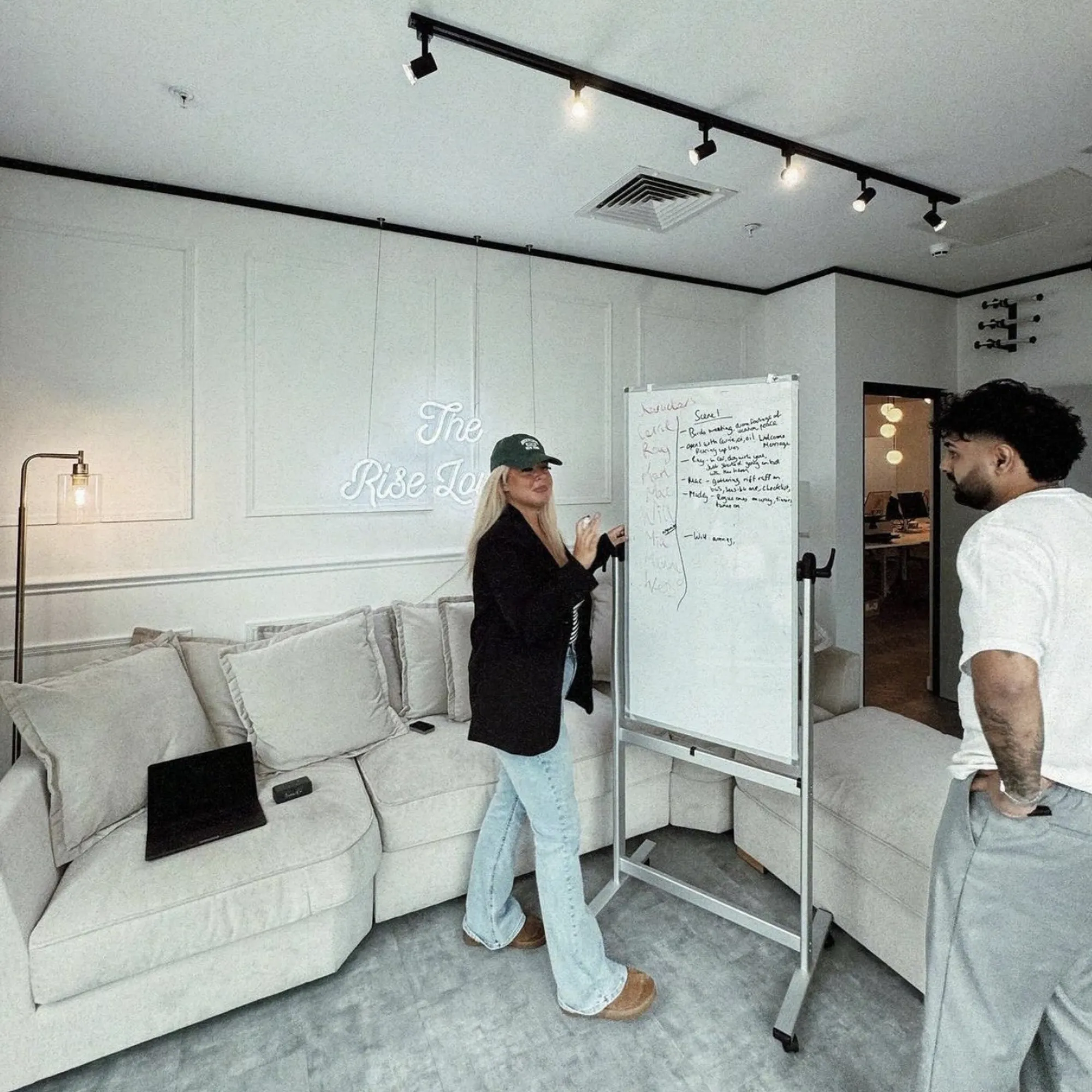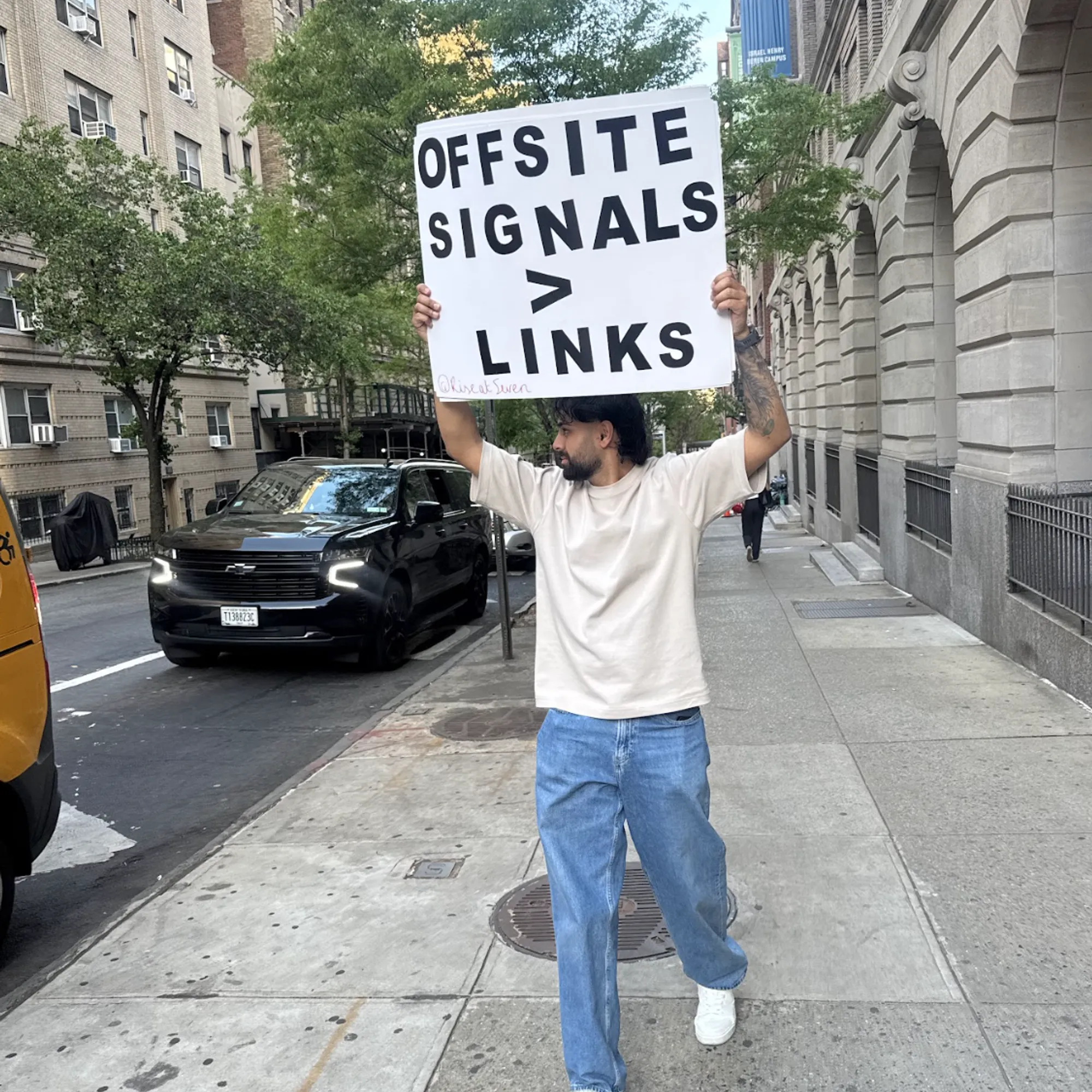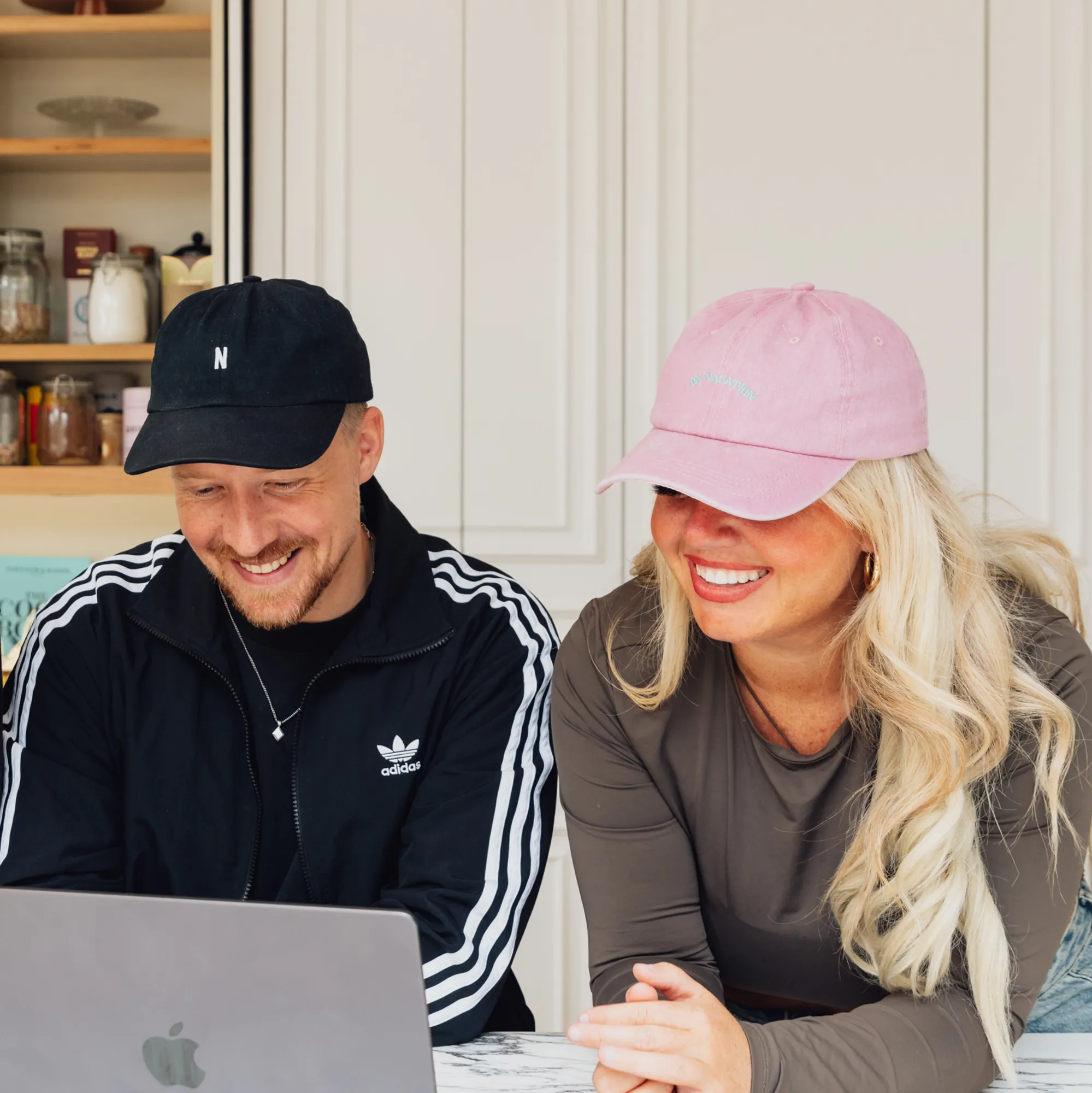
How Netflix show 'Modern Family' summed up PR life

This noughties TV show tells you all you need to know about the importance of researching before you hit send.
Lockdown, right? We all watched way too much Netflix, Disney+, Amazon Prime, Now TV… the list goes on. Some of us took it upon ourselves to rewatch our favourite series on repeat as a way of coping with the world ending, others started on series they’d never attempted to watch before.
I did the latter - I cracked on watching ABC’s Modern Family. Yep, all 11 seasons of it.
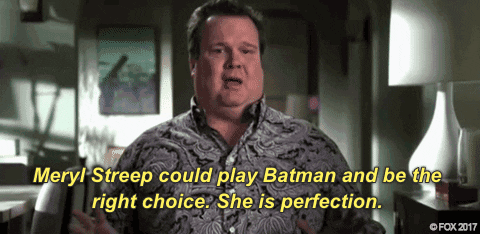
For those who don’t know, Modern Family is about a dysfunctional family made up of three households all living in suburban California, as they go through life trying to navigate being - wait for it - a ‘modern family’ *gasps*.
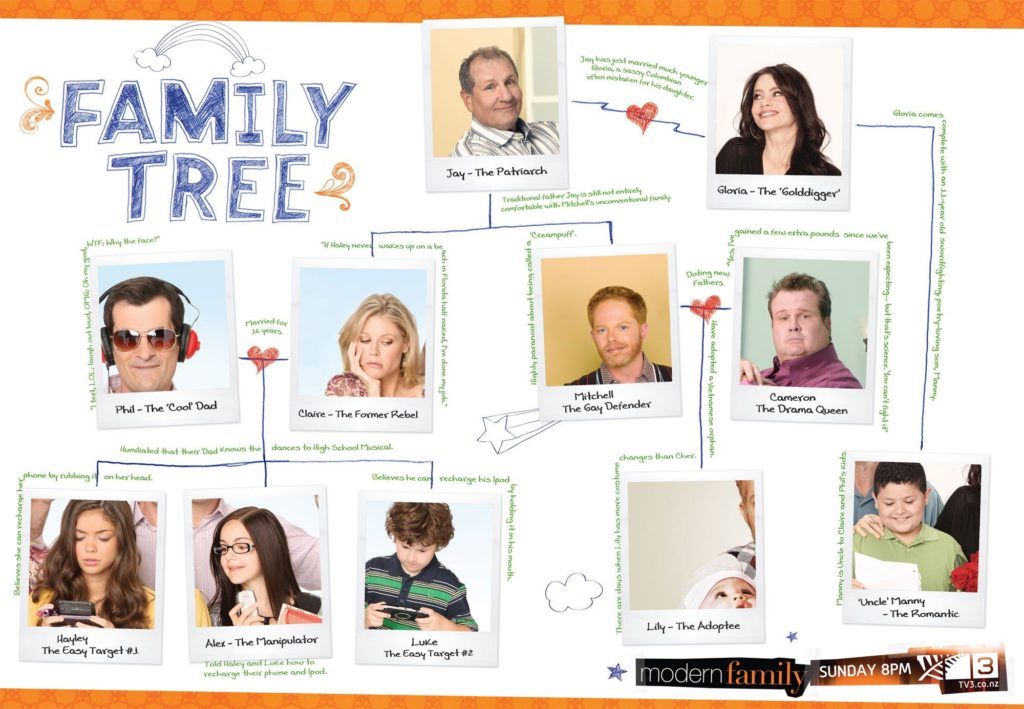
Whilst so many of the things in this 2009 show feel outdated, there was one particular episode which struck me as true now and always: Season 4, Episode 20 - ‘Flip Flop’.The episode sees Phil, a realtor trying to sell a house and having extreme difficulty doing so. No interest, no viewings and no offers have led the family to desperation... until an epiphany comes in the form of a Google search. They receive an enquiry for a viewing and decide to internet stalk this potential customer. Through ‘a quick scan on his Facebook, Twitter, Tumblr, Pinterest and Instagram’, they discover the following:
👶 - He was born in 1986📚 - He went to MIT🏒 - Likes Chicago Blackhawks🦶🏽 - Enjoys Kickboxing🎥 - His favourite movie is Die Hard🍺 - His drink of choice is beer🧘♂️ - He’s big on meditation🍛 - He loves Indian food🎵 - His jam is old school funk
And finally: he’s crazy about his dog, Otis 🐶
So what do they do? They turn the property into his ‘dream house’ - Blackhawks posters adorn the walls, Die Hard trivia is spun, Indian food from the local takeaway is ordered, MC Hammer is on the speaker and they’ve even put a dog door in the wall for good measure.
It occurred to me that this is exactly what outreaching as a PR is like. Don’t get me wrong, we’re not delving deep into the medical records of journalists or finding out where their parents live, but there is something to be said for researching the people you’re speaking to before you dive into that first conversation.
Do your damn research!
In PR it is crucial to know your audience; you’re often working on lots of different topics, from the most relaxing sounds around the world, to the cartoon characters that get us hot under the collar, to the hilarious reality of homeschooling children during lockdown. With this in mind, it is so important to reach out to the right people with your subject of the day - don’t send a tech editor a story about the best places to walk your dog, don’t send a wellbeing writer financial stats… this is how you’ll end up being ghosted or getting a (totally warranted) sassy reply from a p*ssed off journalist.
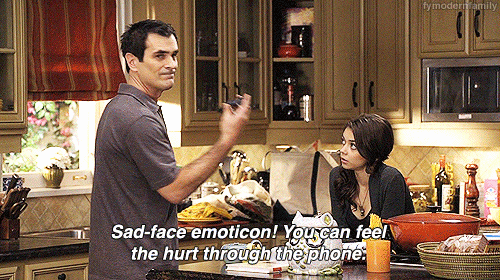
There are a few things you can do to find journalists that fit the bill for your specific story:
FIRST 🔎You can use journalist databases (shoutout to Roxhill here) to find journalists tagged with keywords, ‘finance’, ‘health’, and ‘family’ are all popular ones you can find on there.
SECOND 📰You can head over to a publication and see what kind of stories they’re writing. If they’ve covered 10 stories in the year about virtual holidays, then there’s a good chance it’s an interesting topic to them and they’re likely to cover it again.
THIRD 🐤Use platforms like Twitter to find your journalists. Nine times out of 10, they’ll have their relevant topics, publications, contact preferences, and email addresses in their bio. If the person you’re looking for lists topics and magazines in their bio but says they don’t accept pitches over email then look into alternatives - do they prefer DMs? Do they reply to direct tweets with story ideas? Do they only want stories on a Monday or Tuesday to fit with deadlines?
FOUR 🙏All of the above. I cannot stress enough the importance of taking your time to find the right people and the return on time investment you’ll see. If you find a journalist listed on a database who covers tech, search them on the publication they work for - what are they covering at the moment? Have they actually written anything recently? If you find a recent, relevant article, give them a quick search on Twitter and see if they have their contact preferences listed. Maybe they’ve Tweeted that they’re on a family holiday at the seaside with no internet access or that they’re currently only looking for certain stories, or even that their bio reads that all email pitches are going straight into the trash folder.
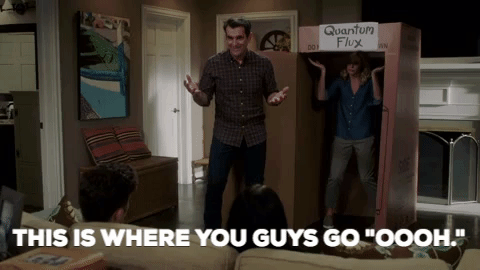
From the horse's mouth
Joe Cawthorn, Live News Editor at Edinburgh Evening News & The Scotsman says: ‘If I see Edinburgh in a subject header, I am much more likely to open the email. If it’s not area-specific - find me an angle for my audience. How does it affect people here? Is there an expert you could get a comment from?
‘Follow up your emails! The amount of emails I’ve missed and been drawn back to thanks to a follow-up email or tweet a day or two later is very high.
‘Finally, PLEASE(!) be open to journos coming back to you for more info. Don't think that just because you've got everything you think is needed, doesn't mean that it has everything the journalist needs!’Ben Bason, Chief Reporter for Bauer Yorkshire, says: 'I often get press releases which aren’t right for us - they either have no local angle, are too feature-y or light, or are blatantly trying to plug a product.
‘Create a relationship and open up a dialogue with journalists. Sometimes i’ll get emails from PRs asking about what we look for in stories, or for feedback if they’ve sent a story we haven’t used. I’m always more than happy to respond in as much detail as is useful. If we have covered your story, ask for a chat with the journalist to talk about what else you’ve got coming up to see if anything might interest them. I’m personally always willing to engage with PRs because it helps both parties - I’m constantly on the hunt for stories!'
Hannah Clugston, Freelance arts writer for The Guardian, Little White Lies and The Yorkshire Post says: ‘If your pitch is clearly generic and nothing to do with what I usually write about, it’s going straight in the bin! I receive tons of emails, so if you contact me having not bothered to even check what I write about, it takes up time in my day having to clear out my inbox. And then, if you do have something relevant for me, I am unlikely to pay attention as I’ll associate all your emails with irrelevant nonsense.‘Also, make sure you follow up within a week! There’s always the chance that I missed your first message. If you follow up with a friendly catch up email, it might jog my memory. I tend to answer my emails in chunks throughout the day to stop them from taking over my life. First thing, around lunchtime and last thing to clear my inbox before the end of the day.’
Risers insight
Iona Townsley, Senior Campaign Executive at Rise at Seven, says: 'Finding journalists that are relevant to your story is imperative for its success. Not only will it save you time from sending your story out to someone who is unlikely to cover it, it also saves the journalist a lot of time from sifting through press releases that aren’t suited to them. It’s a win-win situation. Make sure you always check the journalist before sending out your story, and beware of media databases that might send you down a rabbit hole of irrelevance.'
Paige Evans, Digital PR Executive at Rise at Seven, says: 'It may be time-consuming, but researching is better in the long run. Use your media databases, use old articles that they’ve written (even link them within your pitch), see what they are currently writing about, and look into their email preferences. That way, and in the long run, you will build a relationship with them - there’s nothing worse than pitching the PERFECT story for a journalist and then realise that you’ve pissed them off by sending stories that aren’t relevant to their sector.'
Laura Rowley, PR Manager at Rise at Seven, says: 'Journalists receive so much news to cover every single day, so ensuring that your press release is perfectly tailored to them is going to make you stand out from the crowd. Think quality over quantity and put yourself in the journalist’s shoes - what stories would you want to receive if you were them? And don’t forget a bit of small talk, it goes a long way!'
And finally...
How did that episode of Modern Family end, I hear you ask? Well as our man was about to sign on to buy the house, someone let slip how perfect the dog door would be for little Otis (remember him?) and their facade of coincidental house perfection disappeared…
So we can all learn something here - when you finally get speaking to the journalist you’ve been researching, make sure you play it cool. Maybe don’t go straight in by asking how their 2012 holiday to Santorini was, whether they got the Greggs Meal Deal they tweeted about 35 minutes ago or complimenting them on their 7.54AM facemask train selfie game. Awkward.
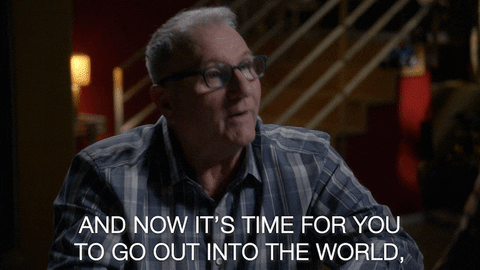
Want a hand?
If you have any questions or would like to find out more about working with Rise at Seven get in touch with us or drop me a DM or email me at ellie.greenfield@riseatseven.com



